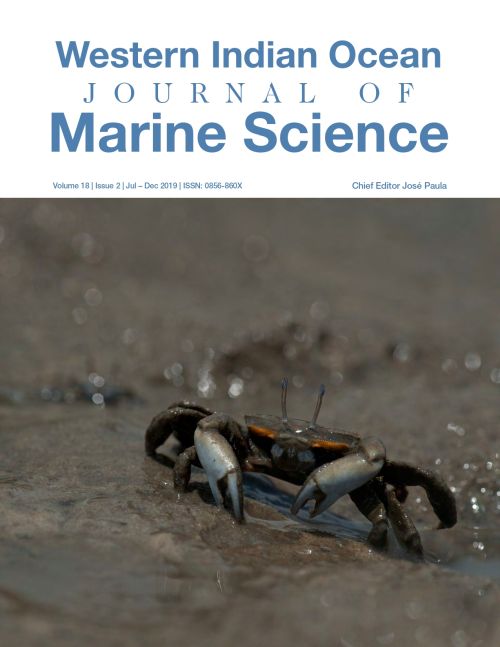Main Article Content
Spirulina (Arthrospira fusiformis) as a potential protein source in practical diets for fry mariculture of Rufiji tilapia (Oreochromis urolepis urolepis)
Abstract
The effects on growth performance, feed utilization, survival and whole fish body proximate composition of replacing fishmeal (Rastrineobola argentea) with a locally available spirulina species (Arthrospira fusiformis) as a protein ingredient in the feed of Rufiji tilapia (Oreochromis urolepis urolepis) fry was examined. Fishmeal replacement with A. fusiformis was carried out at 5%, 15%, 25%, 35% and 100% (S5, S15, S25, S35 and S100), and the effect of the replacement was compared with the control diet (S0, 0% spirulina). Fish fry were stocked at an average initial weight of 0.57 g at 10 fish per 0.1 m3 and cultured for 60 days using full strength salt water (30-35 ppt). A. fusiformis was isolated from Momela Lake in Arusha National Park, Tanzania and propagated using selected culture media. It was observed that fish fry fed spirulina at a 5% fishmeal substitution level diet had better (p<0.05) final weight (8.48), average daily weight gain (0.132), specific growth rate (4.47), feed conversion rate (2.08) and protein efficiency ratio (1.37) compared to the control fish group. Growth performance in fish fed diet S15 was comparable with the control group (p>0.05). Spirulina supplementation had no effect on fish survival rates and meat quality. It appears that the Momella Lake spirulina may be an appropriate growth-stimulating plant protein when used as a feed additive in Rufiji tilapia mariculture.






